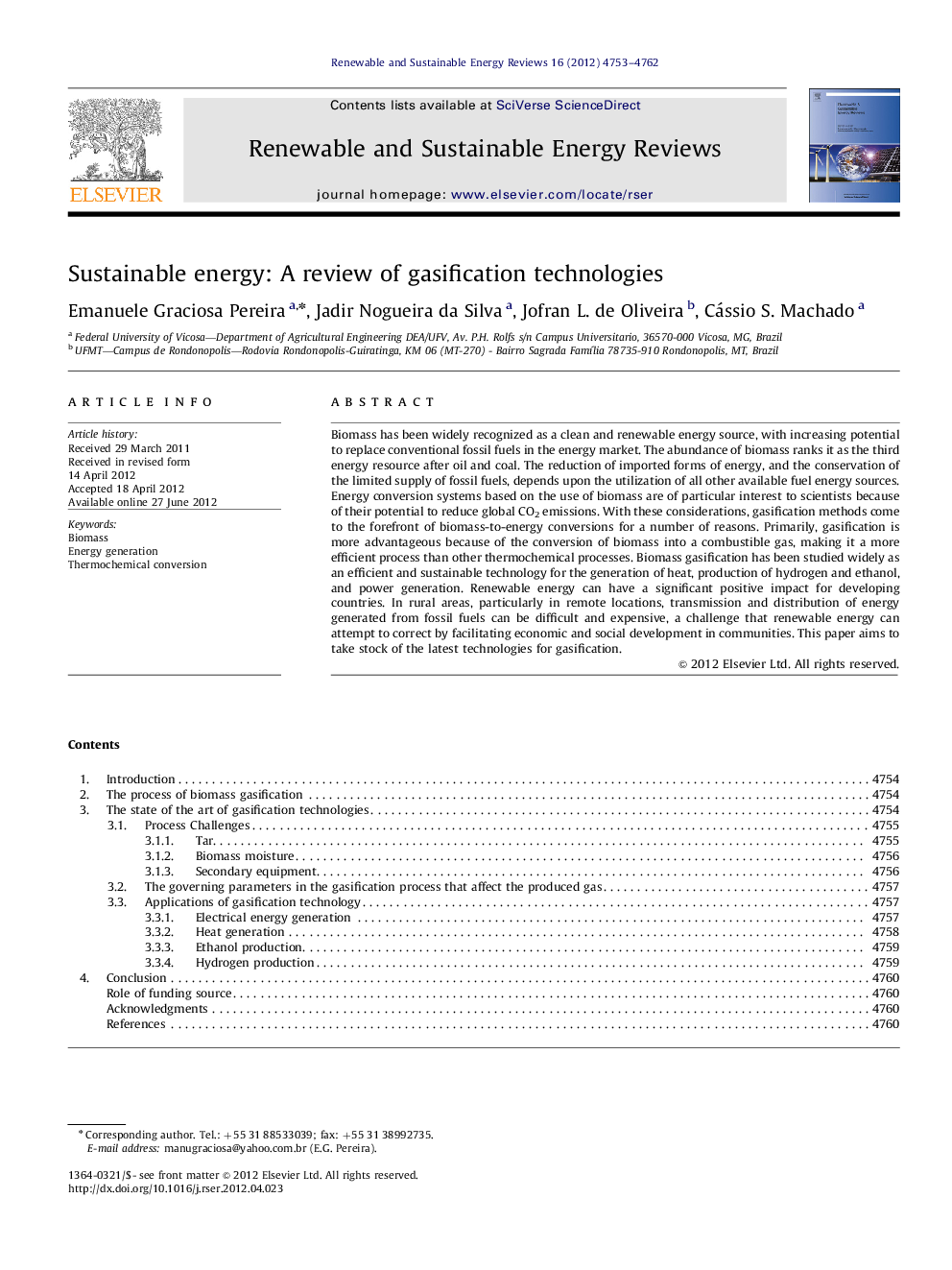| Article ID | Journal | Published Year | Pages | File Type |
|---|---|---|---|---|
| 1750917 | Renewable and Sustainable Energy Reviews | 2012 | 10 Pages |
Biomass has been widely recognized as a clean and renewable energy source, with increasing potential to replace conventional fossil fuels in the energy market. The abundance of biomass ranks it as the third energy resource after oil and coal. The reduction of imported forms of energy, and the conservation of the limited supply of fossil fuels, depends upon the utilization of all other available fuel energy sources. Energy conversion systems based on the use of biomass are of particular interest to scientists because of their potential to reduce global CO2 emissions. With these considerations, gasification methods come to the forefront of biomass-to-energy conversions for a number of reasons. Primarily, gasification is more advantageous because of the conversion of biomass into a combustible gas, making it a more efficient process than other thermochemical processes. Biomass gasification has been studied widely as an efficient and sustainable technology for the generation of heat, production of hydrogen and ethanol, and power generation. Renewable energy can have a significant positive impact for developing countries. In rural areas, particularly in remote locations, transmission and distribution of energy generated from fossil fuels can be difficult and expensive, a challenge that renewable energy can attempt to correct by facilitating economic and social development in communities. This paper aims to take stock of the latest technologies for gasification.
